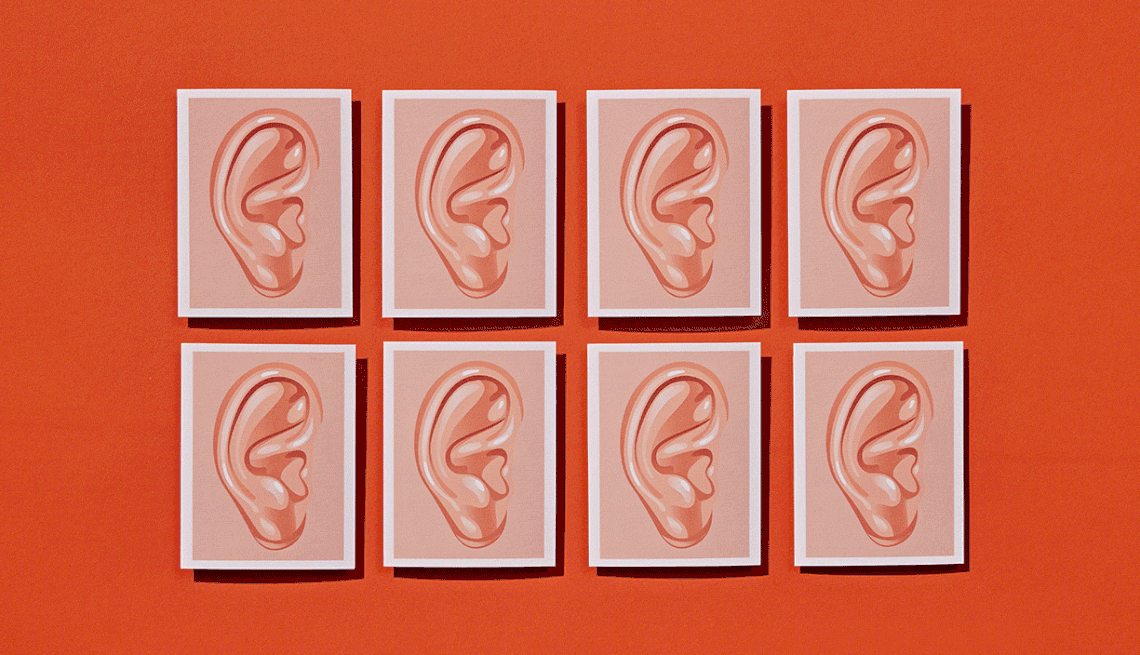
- Select a language for the TTS:
- UK English Female
- UK English Male
- US English Female
- US English Male
- Australian Female
- Australian Male
- Language selected: (auto detect) - EN
Play all audios:
“Other people around us might notice it before we do, because we’ll turn the TV a little bit louder, we can compensate, we can lean in, we can avoid noisy situations,” says Teresa “Terry”
Zwolan, who serves as the director of audiology access and standards of care for Cochlear Americas and received the Lifetime Achievement Award from the American Cochlear Implant (ACI)
Alliance for her contributions in the field of cochlear implantation. “But as hearing loss gets worse, then the ramifications of the hearing loss, the impact that it has on us really
elevates as well, and then we start to withdraw even more. We see that people with hearing loss often isolate themselves, which then can lead to sadness.” A person with hearing loss might
adjust their routine and social interactions, perhaps without consciously realizing it. “They might not even recognize how they’re withdrawing. They might just feel like, ‘I just like quiet
situations better,’” Zwolan says. “And they might not really connect that really, they don’t like to go out because it’s difficult to hear and difficult to communicate.” PROMOTING HEARING
LOSS TREATMENT Zwolan was involved in coordinating a study that helped prompt Medicare to expand their coverage of cochlear implants. “It’s an area near and dear to my heart — we worked very
hard on that initiative. Previously, when I worked in an implant program, I could have two patients of the same age with the same hearing loss sitting in my waiting room. And I could say to
one of them, ‘You qualify for a cochlear implant, your insurance will cover it.’ But to the other person who had Medicare with the same hearing loss, I would have to say, ‘You would benefit
from a cochlear implant, but your insurance won’t cover it.’” Hearing professionals had been pushing Medicare to change the guidelines for covering cochlear implants. “Medicare really likes
to have data to show the value of doing this, so they let us identify a group of patients with a little bit more hearing than they traditionally approved,” Zwolan says. The study looked at
the results of patients who received cochlear implants using the adjusted criteria. “And they demonstrated great outcomes. It showed that it was safe, it was effective, it really improved
speech recognition, it improved quality of life.” Thanks in part to that convincing data, “Medicare brought their indication up and equal to that of the FDA and to that of most insurers,”
Zwolan says. “So no longer do we have to separate out the patients who are elderly, or just on Medicare, because they aren’t covered as well. It was a really nice thing for patients who have
Medicare to be able now to qualify for cochlear implant.” This change in Medicare criteria is an important milestone, as a recent report by The Global Council on Brain Health (GCBH) found
that issues of equity and other structural barriers — such as lack of insurance coverage and the high cost of hearing devices — were a major obstacle that prevented some people from getting
treatment for hearing loss. “I think sometimes patients don’t come in with Medicare, thinking that Medicare does not cover cochlear implants because straight Medicare doesn’t cover hearing
aids currently,” says Zwolan. “Some of the Medicare Advantage plans are the Part C plans [that] will cover hearing aids, but traditionally straight Medicare has not covered hearing aids.”
Zwolan says this may cause some Medicare beneficiaries to assume they wouldn’t be covered for cochlear implants. “I think it’s important for us to get the information out that yes, Medicare
does cover cochlear implants and now they cover them even better than they did in the past.”








